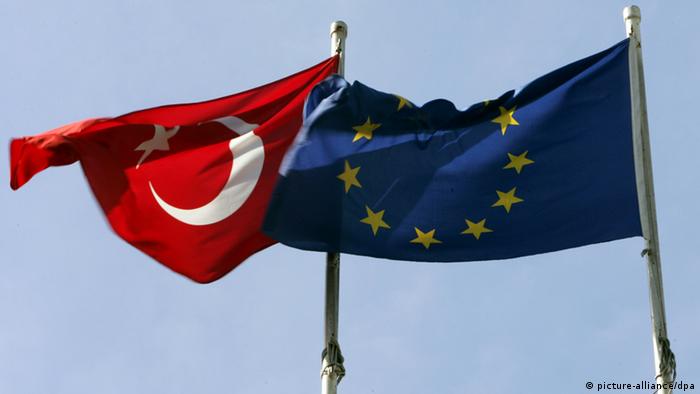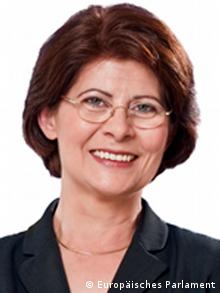The EU should freeze accession talks with Turkey while protests continue in the country, German member of the European Parliament, Renate Sommer, tells DW. She says Turkey's prime minister is acting "un-European."
DW: The European Parliament has strongly criticized the escalating violence in Turkey and the approach the government has taken to protesters. Ireland, as the current president of the European Council, wanted to restart accession talks with Turkey on Wednesday. Now, it seems that will be impossible. No new chapters in negotiations will be opened. Is that the right step?
Renate Sommer: I think it is the right step because we have to remain consistent. If a new chapter was opened then it would look like we accept what Prime Minister Recep Tayyip Erdogan is doing. The situation is so bad that we can no longer just stand by and watch what is happening. One has to send a clear signal and say at the moment we cannot open any new negotiation chapters.
The talks with Turkey have been rocky for years. Only the non-critical issues are being addressed. Not a single chapter has been closed because Turkey continues not to recognize Cyprus as an EU member. Would you say that enough is enough and it's time for the talks to be completely canceled or frozen?
I would freeze them, but I would not use the word "cancel." Because then Erdogan would have a reason to officially turn away from the European Union. If we were officially to freeze them, then it would be a clear signal that we do not accept what Erdogan is doing in his own country because it is completely un-European. But the door should not be completely closed.
If the EU cuts its connection to Turkey, what options would it have to influence the country?
We would still have possibilities. Financial issues, for example. I am not of the opinion that Turkey should be a member [of the European Union]. I never have been and that's being confirmed now. Still, we cannot completely turn our backs on the negotiations because these could make up the basis of what the Christian Democratic Union calls a "privileged partnership." That's a special relationship that could go as far as Turkey participating in support programs in certain political areas. It is still, however, quite far from membership. That is the option that we offer.
Is the EU's approach not playing into the hands of those people in Turkey who do not want Turkey to develop closer relations with the EU or become a member of it?
I do not think so because the European Union will still be very appealing to Turkey. Erdogan denies it at the moment, but he will have to see that the economic boom in his country is slowing down. A lot of it is built on credit. He will end up needing the EU. It is not only that we will need workers from non-EU countries, such as Turkey, in the future, but also that Turkey has an important interest in cooperating with us. It would be the wrong step for Erdogan to turn away, but at the moment, no one knows what he will decide.
Turkey's Europe Minister Egemen Bagis has accused German Chancellor Angela Merkel and her party, the Christian Democratic Union (CDU), of turning Turkey into a campaign issue ahead of September's elections in Germany. What do you say to this accusation?
Factually, that is completely wrong. The CDU has kept the issue out of the campaign. It's a flagrant accusation, but he also said other things. He said things will end badly for those who criticize Turkey. It was a downright threat to Merkel. It is a manner of expression that we do not accept in any way. That is why we all need to take a deep breath and hold off on everything until tempers in Turkey have calmed down. The Turkish Minister for Europe publically insulted me three weeks ago by calling me a "delirious representative" only because I made a critical statement about a agreement on the return of refugees that we wanted to sign with Turkey.
The situation appears to have gone off-track. How do you and the European Parliament want to continue? Wait and see, or can you use your parliamentary contacts to achieve something?
In the next few weeks we have a meeting with the EU-Turkey Joint Parliamentary Committee. That has not been canceled yet. Turkey's Europe Minister is invited and said he will attend. I assume that he will not come, but I could imagine other Turkish parliamentarians participating. Then, we would try to sit down at a parliamentary level and have a reasonable conversation. I think that not all parliamentarians take the view that things in Turkey should continue the way they are at the moment.
Dr. Renate Sommer has been a German member of European Parliament since 1999. The 54-year-old has a Ph.D. in agricultural science and in parliament addresses issues dealing with Turkey, civil rights and consumer affairs. She is the deputy chair of the joint committee made up of members from the European and Turkish parliaments. dw de


Comments